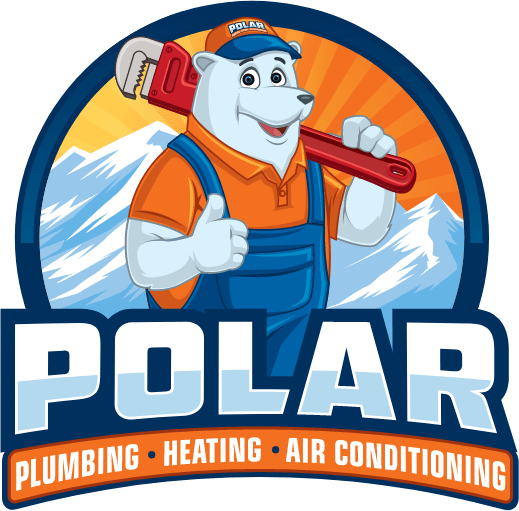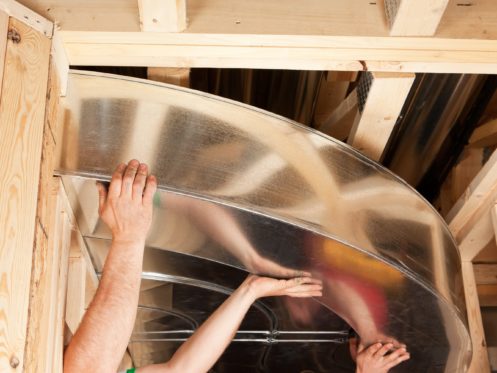Damaged ductwork can often be difficult for homeowners to spot, but it can seriously affect both your energy costs and your home’s air quality. You should always contact a licensed HVAC professional right away when you suspect that you have damaged or improperly installed ductwork. Polar Plumbing, Heating & Air Conditioning offers quality plumbing, heating, and air conditioning installation and repair services in Newburgh, New York, and the surrounding areas. If you’re encountering any of these common indicators of damaged ductwork, it’s probably time to schedule a service call.
1. Dust Buildup Around Your Air Vents
Your home HVAC system isn’t designed to be serviced by homeowners, and your primary service responsibility is changing your air filter at least every 90 days. The filter traps allergens, fungus, and molds that can adversely affect your home air quality. If you continue to see excess dust or dirt buildup around your vents and registers, it’s usually an indicator of air filtration problems elsewhere in your air ducts.
Your ductwork’s purpose is distributing heated and cooled air through your home, and the filtration system is designed to clean the air during the air circulation process. Your air filter is positioned directly behind your air intake vent to capture solid particles such as dust, pet dander, and mold before they have a chance to circulate through your home. If your air filter looks clean but your vents stay dirty, you might have dust or other solid materials built up inside your air conditioner’s machinery that can lead to costly repairs in the future.
2. Sudden Increase in Energy Bills
You already know that you can expect seasonal increases in your utility bills as your home heating and air conditioning needs change throughout the year. Our home energy costs are also subjected to steady ongoing rate increases that occasionally turn into meteoric rate increases. The other reason for a sudden increase in your utility bill is a problem with your HVAC system. If you do get a sudden increase in your utility bill, your ductwork is one of the first areas where you should investigate.
Leaky ductwork expends heated and cooled air into your attic but might not otherwise affect your HVAC system performance that much. But, your unit will have to work harder to maintain the desired temperature, and the wasted energy costs can be further compounded by seasonal rate increases during peak usage seasons. If you can’t explain why your utility rates are suddenly outstripping normal energy rate increases, you owe it to yourself to let a professional HVAC contractor inspect your ductwork.
3. Strange Noises
You should always call a professional HVAC technician when you hear grinding or metallic noises coming from your unit because that means that metal parts are grinding together and will likely soon need to be replaced. There are also other sounds that can indicate problems with the ductwork. If you hear booming or popping sounds when your HVAC system turns on, it could be due to ill-fitting or improperly installed ductwork. Your household ducts have an inner metal membrane that expands in response to the air pressure changes that occur when you turn on your heating or cooling systems. You probably won’t be able to hear the hissing sounds of escaping air over the other sounds of your unit, but you might be able to feel drafts around the joints when you’re up in your attic.
4. Uneven Heating Through the Home
Some homes have rooms that will be naturally warmer or colder if they’re positioned in areas that receive uneven sunlight, but your HVAC system should still maintain the same temperature in every part of the home. If you have a room that seems to consistently be 10 or more degrees warmer or cooler than the rest of the house, your air ducts could be compromised. You should also note that closing off your vents or registers in unoccupied rooms offers negligible energy savings, and it creates uneven air pressure that can cause additional strain on your unit.
5. Poor or Restricted Airflow
Airflow problems are one of the easiest concepts to explain. If you have air duct damage, it causes your central HVAC unit to work harder in order to maintain the desired household temperature. The system is forced to run longer to compensate if your ductwork is blocked or damaged, and the additional wear and tear can hasten the need to repair or replace your system.
There are several factors that can adversely affect airflow, including broken seals, cracks and tears, and disconnected or crushed ducts. Sometimes the house has settled or the ducts were improperly installed. Undersized vents or oversized ducts are more challenging problems to resolve without replacing the ductwork, but during your annual service visit, your technician will make sure that you don’t have any accumulated dust or debris blocking your ducts or traveling into your unit.
6. Moldy or Mildew Smells
If you have any allergies or respiratory health issues, you already know the dangers of mold in the home. Mold or mildew appears when condensation forms on your ductwork or the joints, usually because of poor insulation. You might not immediately notice small amounts of mold or mildew on the exterior of the ductwork, but you should make a service call right away if an overwhelming stench of mildew starts coming from your vents.
7. Evidence of Pest Activity
Household pests like to find dark and warm places to forage for food and to breed, and your ductwork offers them in abundance if it offers any points of access. Dead insects or droppings near vents or registers aren’t as obvious as the smell of a decomposing rodent coming directly from the vents themselves, but it’s usually a safe bet that there are more of them nearby. Your pest control company’s agent might note observable pest activity near your ductwork during your annual termite inspection, but will be primarily looking for problems that affect structural wood. Be sure to contact an HVAC contractor immediately if you suspect that pests are nesting in your ductwork or central unit.
8. Visible Ductwork Damage
Last but not least, be sure to occasionally have a look at your ductwork in the attic. You don’t have to root around and inspect every square inch, but you should make sure that nothing heavy leans against your ductwork. A smaller home often suffers from a paucity of attic space, but excess clutter makes obviously kinked, tangled, or dented ductwork more difficult to spot. Your household ductwork seals will predictably deteriorate over time, and it’s typically more cost-effective to replace ductwork that’s over 15 years old rather than paying for repairs.

